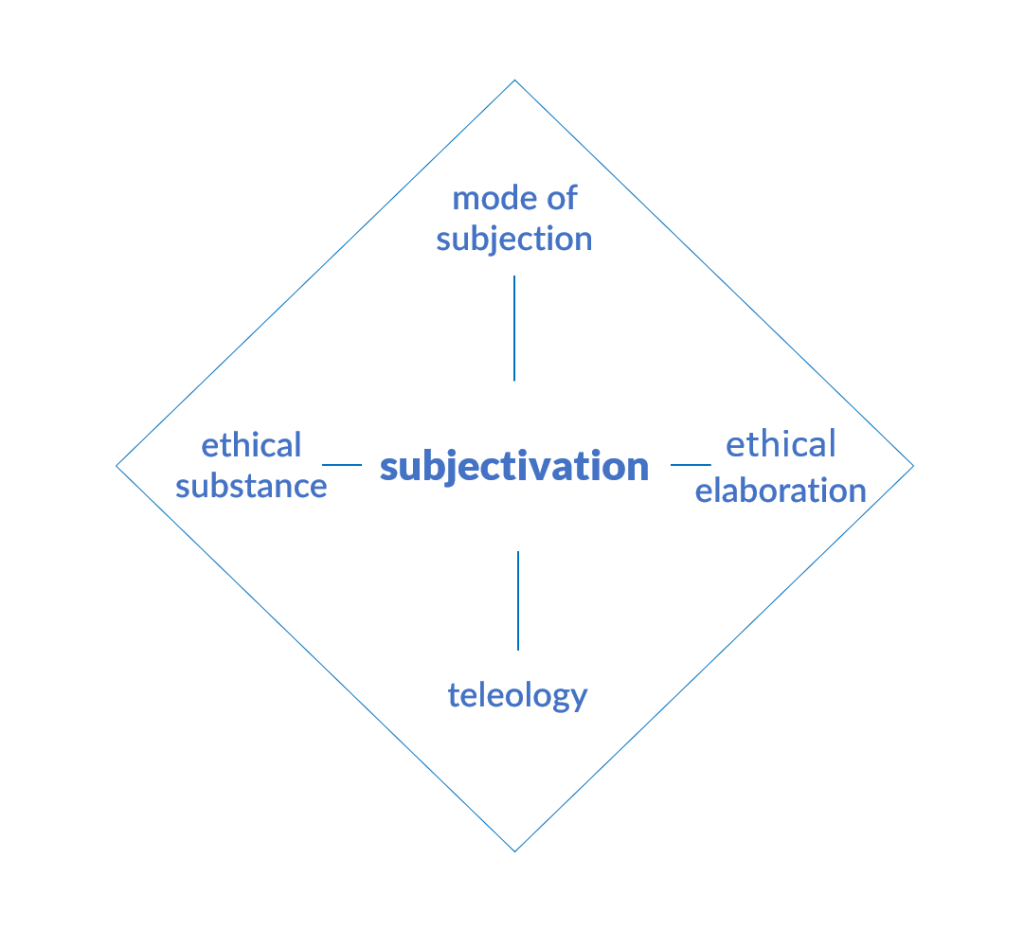About Foucault’s four aspects of subjectivation
Recently I published the article ‘With Foucault on subjectivation, seduction, and technology’ (as the English translation of the Dutch title would read) (see special issue and my contribution). My article is about the question what the posthumously published book Confessions of the Flesh adds to Foucault’s approach of subjectivation, and its application in the domain of ethics and technology. The article is not only about the content of Confessions of the Flesh, but an important part is about Foucault’s angle of research, which in his late work shifts from ‘knowledge’ and ‘power’ to ‘subjectivation’. In Foucault’s very last books he applies a fourfold framework of subjectivation.

Strangely, I always found, Foucault does not give any explanation whatsoever on how he came to this framework. There are good reasons to believe it relates to Aristotle’s four causes and also refers to Heidegger’s philosophy of technology. I assumed that somewhere in Foucault’s work there must be information about how he actually constructed the scheme. But I have nowhere found any explicit clues. Other Foucault scholars, experts, that I had contact with, also did not know of any explication by Foucault. The harder it appeared to be to find an answer to the question of the conception of the scheme, the more fascinated I became with the issue.
See a provisional translation of excerpts from the article concerning the four aspects of subjectivation:
About the origin and importance of Foucault’s four aspects of subjectivation, taken from S. Dorrestijn (2023) Met Foucault over subjectivering, verleiding en techniek (With Foucault on subjectivation, seduction, and technology) Algemeen Nederlands Tijdschrift voor Wijsbegeerte, 115(1), 100-113.
Earlier I coped with the fourfold scheme in the following texts (in English):
- S. Dorrestijn (2012) The design of our own lives: Technical mediation and subjectivation after Foucault. Enschede: University of Twente (PhD thesis), see there p. 59.
- S. Dorrestijn (2017) The Uses of Reason in Times of Technical. Foundations of Science, 22(2), pp. 333-337.